The demise of "discussion" in the Chinese Internet
a structured reflection

0 Preface
In the recent special period, many people have observed this phenomenon: some articles can be published unimpeded on the WeChat public account, and they can be basically preserved on the Internet after they are published. Instead, they are more niche and more liberal. When it was published on Douban, it was quickly censored and deleted. This interesting contrast prompted me to reflect on the structure of Chinese social media.
These phenomena are well explained by the concept of the "public sphere" in political philosophy. As early as the Internet 1.0 period in the early 2000s, scholars around the world have longed for and discussed one thing: cyberspace replaces urban space to take over the public sphere, and even creates an unprecedented possibility of an ideal public sphere. Obviously this ideal eventually went bankrupt, but the reasons for its bankruptcy are actually worth analyzing. At this level, we can also understand more macroscopically and intuitively why the Chinese social media we use every day is what it is now.
During the period when the Internet was just beginning to enter thousands of households, it is understandable that many people fantasized about the arrival of the "digital ideal country". The discussion tradition of public affairs in ancient Greek city-states profoundly influenced the subsequent Western political system, but its participants were only adult men, while slaves, women and gentiles were excluded; 19th-century French salons, cafés and The Street Garden is also an important case of public affairs discussion venues, but its participants are actually limited to the emerging bourgeoisie and intellectuals in established cultural circles. Therefore, when the Internet began to enter thousands of households, naturally some scholars eagerly hoped that the Internet, as a brand-new, low-threshold, anonymized medium, would bring unprecedented equal voice to netizens around the world. Therefore, why not Could it be a utopian public sphere?

It is a pity that the later development of the story still follows the same cliché that has been repeated a thousand times - human beings expect the advancement of a certain technology to subvert the improvement of the human world, but in fact, the new technology only in turn re-emphasizes human beings Group-native defects. Nearly 20 years have passed, and it may not take us too long to come to such a conclusion - at least in the Chinese Internet, there is no (no longer) true equality and open discussion, and the logic of building social media platforms is on the contrary. The formation of the public sphere is intentionally avoided.
Anonymity has disappeared, replaced by real-name - social accounts must be bound to ID cards and mobile phone numbers. The democratic, equal, decentralized, and decentralized world that scholars once enjoyed has not yet arrived; it can be seen that there has been an insurmountable difference in traffic between official media, "head accounts" and grassroots users. User-generated content (UGC) is completely defeated by professional team-generated content (PGC). This seems to lead once again to the question that has been questioned since Plato's "Republic" - is it an unshakable nature of human society to follow leaders and create hierarchies?
High-quality dialogue is a necessary and sufficient condition for the formation of the public sphere. "In the public sphere, individuals come together as private individuals to form the public," where they continue to reach a unified opinion through rational dialogue—the public opinion. In many cases, public opinion is different from the opinion of the ruling power, or the "truth" discussed and revealed by the public is different from the narrative of the event by the ruling power. Individual users come together, and with the help of the existence of the public domain, they put forward deliberation opinions from the bottom up. It is an intermediary that is independent from the state and the people, but also between the state and the people and plays a role in coordinating the balance of power. The Blue House website in South Korea and the White House petition website in the US are both (simplified) digital public domains. To a certain extent, it reflects the opinions of the people from the bottom up and promotes the reform of corresponding policies.
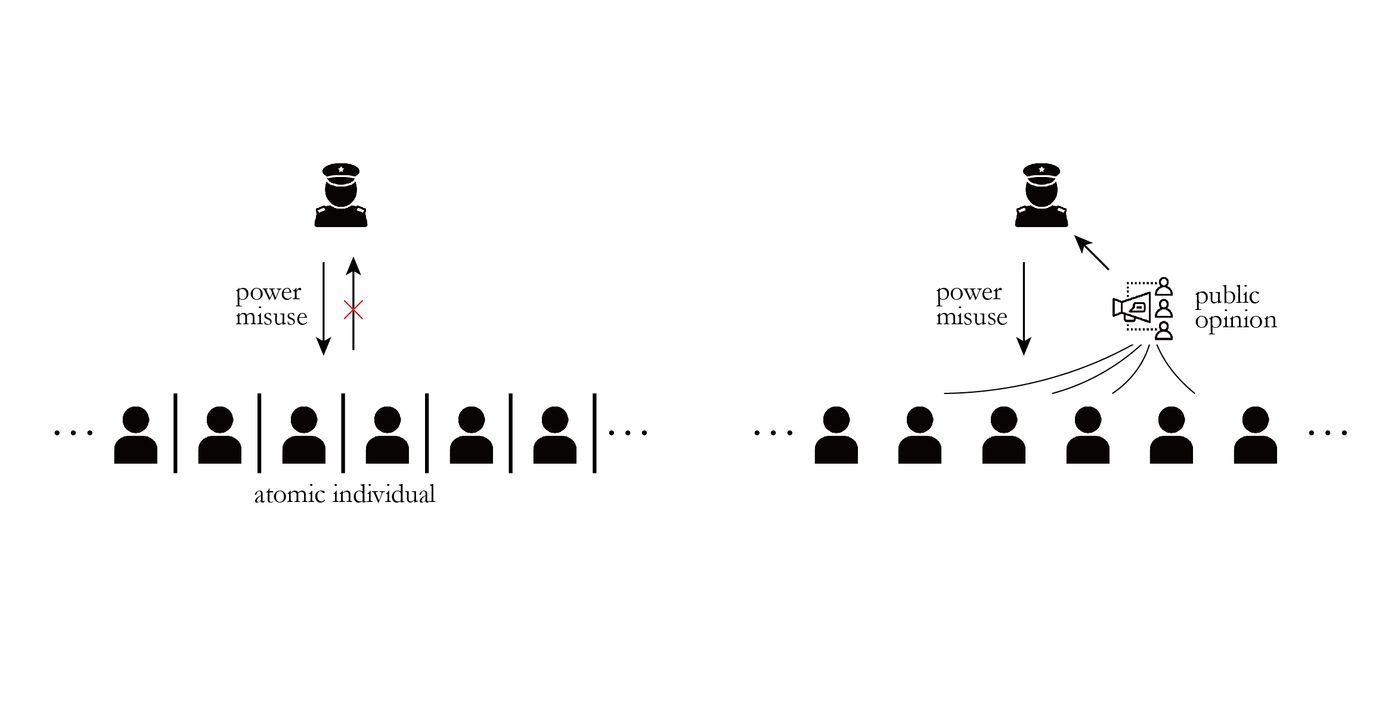
A published piece of content, even if it is available to all users, is still not "public" if it is structured to avoid any valid discussion. This is why it is generally accepted in contemporary communication that forums, blogs and message boards remain the best public realm in the digital age to date. Sadly, we have seen the decline of forums and blogs, and the message boards of mainstream social media have long been castrated to the point of crippling.
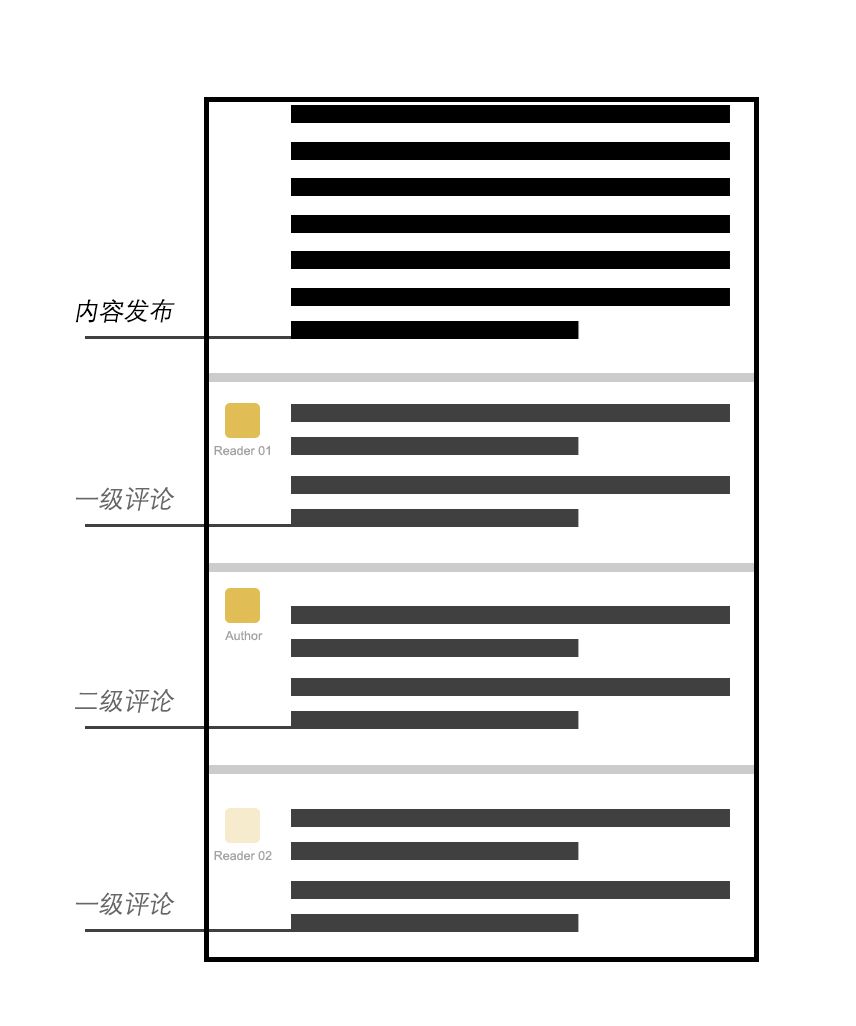
There are of course a number of reasons for this, such as many blaming the demise of forums and blogs on their failed transition from computers to smartphones, and interpreting the severely limited message board functionality in social platforms as a threat to vulgar content and exploiting loopholes. , brush traffic and other malicious behaviors. But on the whole, the demise of the public sphere in the digital age is due to technology and the development of the times, but the fundamental reason is the system.
1. WeChat public account
We start with the WeChat public account platform, the most commonly used platform for publishing content, to analyze this problem in detail.
As the social platform with the largest daily/monthly activity in the world, WeChat's success is inseparable from its good "privacy" in its inception period. The circle of friends can be a place where opinions are expressed, but the published content can only be seen by the user's friends. It's what contributed to the product's initial success, but it's what keeps the platform -- no matter how large its user base -- essentially a polycentric private sphere.
So is there such a place on the WeChat platform that allows "people who don't know each other come together as private individuals to form a public, discuss and generate public opinions"? In fact, there is, that is the "message area" in the official account push, which is the only place on the WeChat platform that allows "unfamiliar users who have not added friends to each other" to appear at the same time and gather public opinions. This is not the case. On March 11, 2020, WeChat users who did not know each other posted a message in the message area of "People" Weekly's "Whistleblower" text content, which reflects this kind of satisfactory interaction between unfamiliar users. .
This probably explains why the "message area" in WeChat push is so strictly restricted.
Restriction 1, no discussion: Not all official accounts have a message area. Before December 6, 2017, only some official accounts that continue to publish original content will be officially invited to open the message function. December 6, 2017 to March 12, 2018 is not a long "good day", and the official account registered during this period will automatically have a message function. The official account registered after March 12, 2018 has no message area again. In theory, the WeChat official still conducts the assessment from time to time. After the assessment is successful, an invitation is sent to the official account operator to enable the message function. However, from the communication between operators, it can be known that this is an extremely isolated situation.
Restriction 2, the number of discussions is limited: if the official account has a message area, the upper limit of the number of messages is 100. Featured comments are limited to 5. In addition, more importantly, the message area as a discussion place is obviously dependent on "push" to exist, and the number of "push" is limited to 1 time per day for subscription accounts and 4 times per month for service accounts.
Restriction 3: The number of interactions in the discussion is limited: After the message appears, the author can only reply to the comment at most once. Others are not allowed to reply. (Even messages that have been extremely private in the background are also limited to 48 hours of reply time. After that, the message will be deleted.)
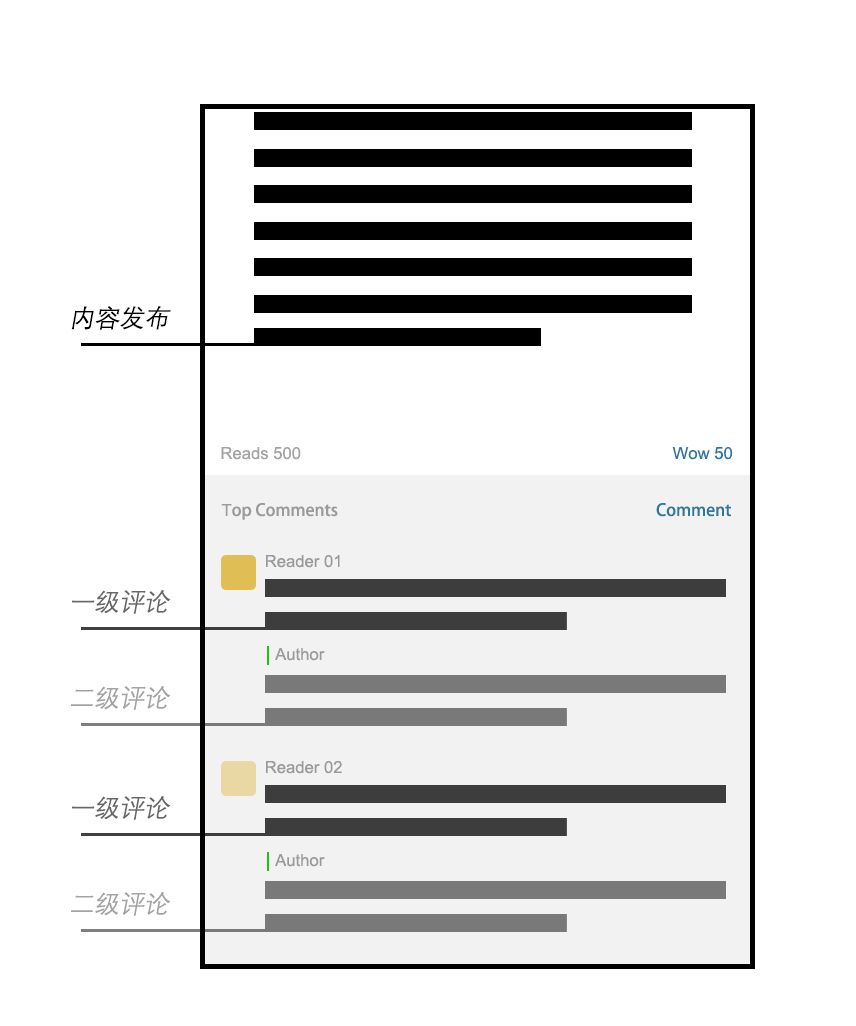
Restriction 4. The main body of the official account is responsible for the content of the discussion: the release of the message is not decided by the readers, but by the operator of the official account to choose and display it in the background, which also means that if the content in the message area is illegal, The operator of the official account also needs to bear the responsibility. In fact, this logic is reflected in every detail of the operation of the official account. For example, before each push is sent, it is necessary to scan the code on the mobile phone to confirm the sending - clarify the responsible person - if the push content violates the law, then the individual whose identity information has been bound can be quickly investigated. For example, in the application of the message area, if you want to get the message area after March 12, 2018, almost the only way is to migrate the official account, that is, migrate from the "personal subscription account" to the "enterprise subscription/service account". For the registration of an "enterprise" account, more information in addition to name, ID number, and mobile phone number is required, including company name, registration number, legal representative, social credit code, registered address, etc. This increase in the threshold binds the content release of the official account more closely with the enterprise, which means that the main body should be more clearly aware that it has nowhere to escape the content release and the discussion content in the message area. form of legal liability.
2. Douban
On this basis, it is not difficult to understand why Douban, which is more niche and more "liberal", has conducted more stringent censorship on the content posted by users than WeChat. This is because Douban’s dissemination structure, compared to WeChat, is already extremely easy to form a “public domain”—whether it is a broadcast, a diary, a comment, a photo album, or a post in a group, the message area automatically exists. There is no limit to the number of messages on the Douban platform, the number of characters in each message is unlimited, and the number of interactions between messages is still unlimited. And because since the website was created in 2005, the mark of "book, video, and audio" has been the focus of its functions. The first batch of "Internet celebrities" on Douban are mainly intellectuals with a high degree of education and even with a background of studying abroad. Understandably, this digital space naturally has the potential to be a place for public opinion to rally.
It must be mentioned that Douban, as a social platform, was actually known as the “Friends and Neighbors System” before its revision in 2011. At that time, the way of communication between users was to apply for "becoming friends with each other". In this case, the two users either follow each other or are strangers, which is more similar to WeChat's "friend addition", and it is more restored. The process of making friends in ordinary interpersonal communication. This sense of intimacy, presence, and personalization impressed many users, and finally led some users to log out of their accounts in a rage when their “Friends and Neighbors System” was revised. After the revision, the "follow" type of interaction that has been used until now is basically similar to Weibo. When the original more "atomic" structure is changed to a more complex and more fluid network structure, the "broadcast" and "group" functional blocks will officially become Douban's "square space" in the digital age - if It is said that the "friend-neighbor system" is more like a point-to-point visit between neighbors, so now, people who don't know each other can gather to discuss things more conveniently.
Going back to the topic of censorship, it is precisely because of the emergence of the "Plaza Space" and the opening of the message area that Douban must adopt stricter content censorship than WeChat. The Douban operation team itself is clearly aware of this structural problem. So it can be seen that what they are doing is not only strict supervision of user content: in special periods, the broadcasting function, diary function, and even highly popular groups (such as the "Douban Goose Group") will be temporarily suspended—— The "square" is temporarily closed; during special periods, active users with a high number of fans are more likely to be banned or even banned than grassroots users - opinion leaders are not allowed to "shout the flag"; in addition, even if some sensitive content is not deleted, their comments Zones will also be restricted to "no replies" - strictly guarding against any appearance of the "public domain". Finally, almost every time when public opinions are surging, the news that "Douban may be shut down entirely" will come again - do you have to have a public discussion? Then just throw it away. Some old users who are clearly aware of the trade-offs here will also persuade earnestly: Don't talk to the country, intellectuals should go back to discuss literary and artistic works.
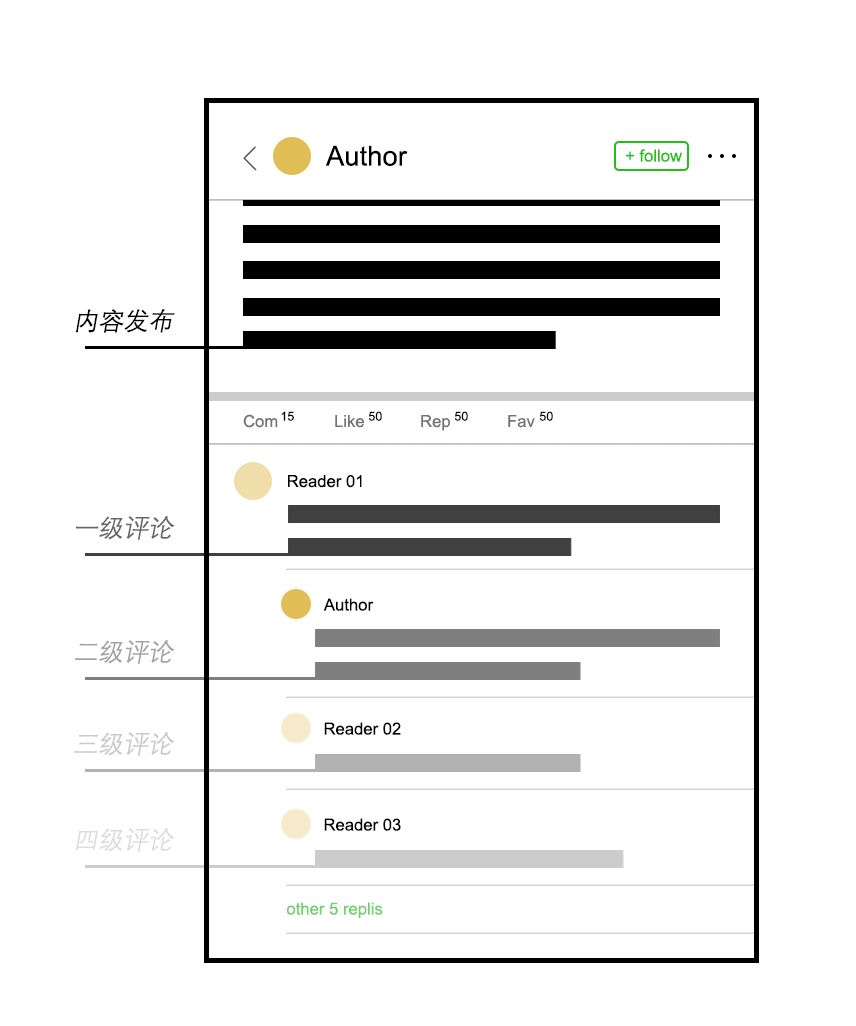
If the truth becomes clearer and clearer, it means that open discussion will reveal the truth. If discussion is not allowed, then the truth will always be hidden in the shadows, and it will become easier for one side to monopolize the narrative.
Hannah Arendt also expressed essentially the same opinion in The Human Conditions. It was she who first coined the term "public realm" in the 1950s. Arendt believes that the public sphere is both diverse and unified. People look at the same place from different places and from different directions, and those who gather around it see unity in diversity. So the reality of the public sphere depends on the simultaneous existence of diversity and unity. In addition, the truth may be nothing. In the public sphere, the public should "replace truth with opinion and grasp truth with opinion". Everyone understands the world in their own way, expresses different opinions, and no one has absolute truth. Only when opinions are exchanged can the public have a complete and better understanding of the common world.
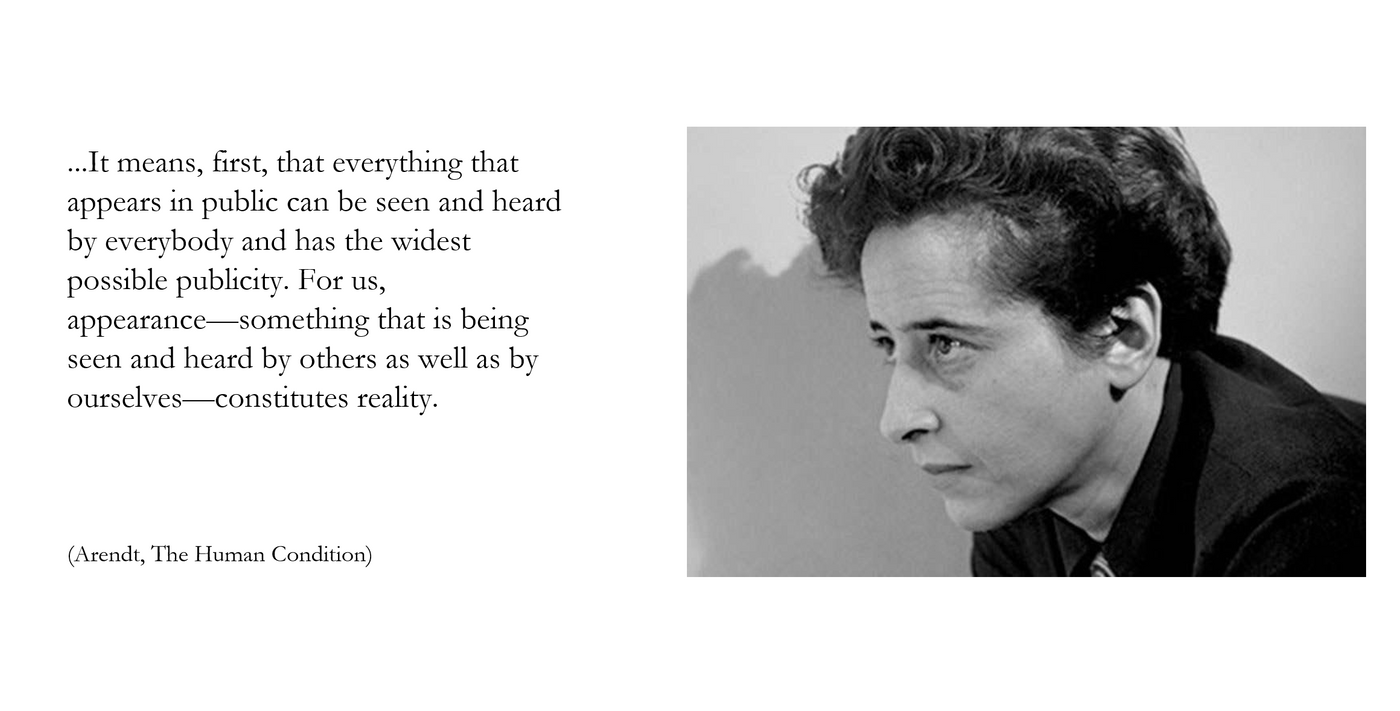
△ Hannah Arendt and an excerpt from The Human Condition
3. Sina Weibo
When talking about Weibo after Douban, because of the similar “following” mechanism, there are many “structural prevention of the occurrence of the public domain” between the two that are similar. The difference is probably that, spatially, the Weibo platform shows more that users gather around “big V” rather than “topics”. We can't deny that Sina Weibo had a golden age around 2010, but we can't deny that after 2013, Sina Weibo seems to have no turning back, but in fact it must move towards more and more superficial entertainment.
When it comes to Weibo's control of the publicity of the message area, it is more about reducing the importance of message discussion from the spatial structure of interaction design - the visual level of messages is much lower than the content itself. The difficulty of the discussion is also that the back-and-forth communication between users is interrupted by inserted advertisements.
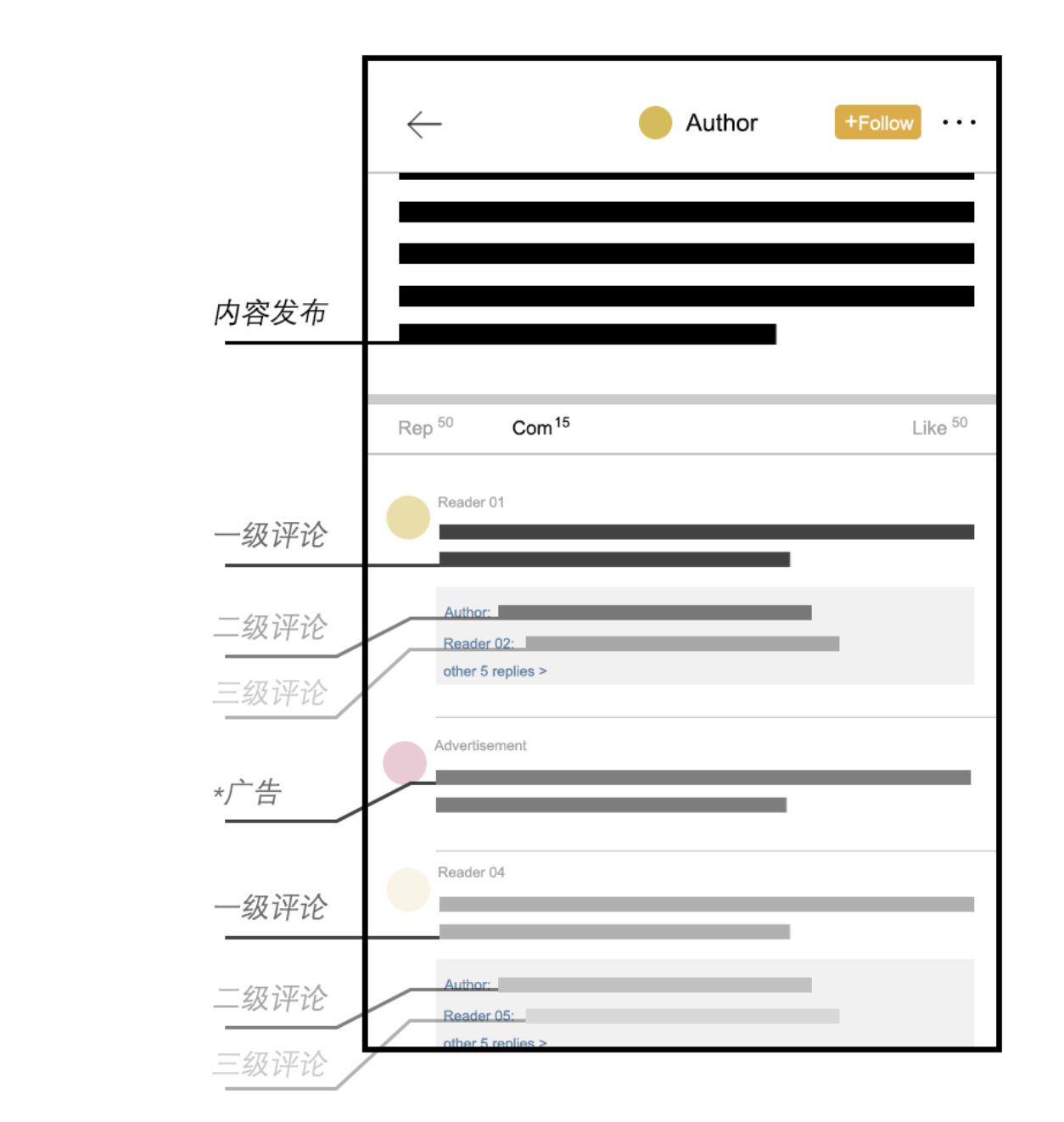
Professor Byam divides media into "poor media" and "rich media" in "Personal Connections in the Digital Age". In short, the information dissemination clues of rich media are few and single, but the content it conveys can be more complex; while the information dissemination clues of poor media are many and complex, but its content is often simple and clear. In this sense, the transformation of Sina's key products from "blog" to "microblogging" can be seen as a shift from rich media to poor media. The interactive nature of the latter makes it clear that it does not encourage long-form content, much less long-form replies, but rather short-form content that can be browsed quickly, and encourages rapid, viral expansion and go viral.
If we strictly dig into the definition of "social media", whether Weibo is a social media is even worth reconsidering. The media structure of Weibo is basically modeled after Twitter. Some researchers have carried out big data capture and concluded that the "mutual fan relationship" of users in Twitter is actually very unequal, so the main function of this platform should probably be understood as "getting information" rather than "building relationships" . Twitter and Weibo are more like "news media" than "social media" since they don't build relationships and promote equal and diverse conversations.
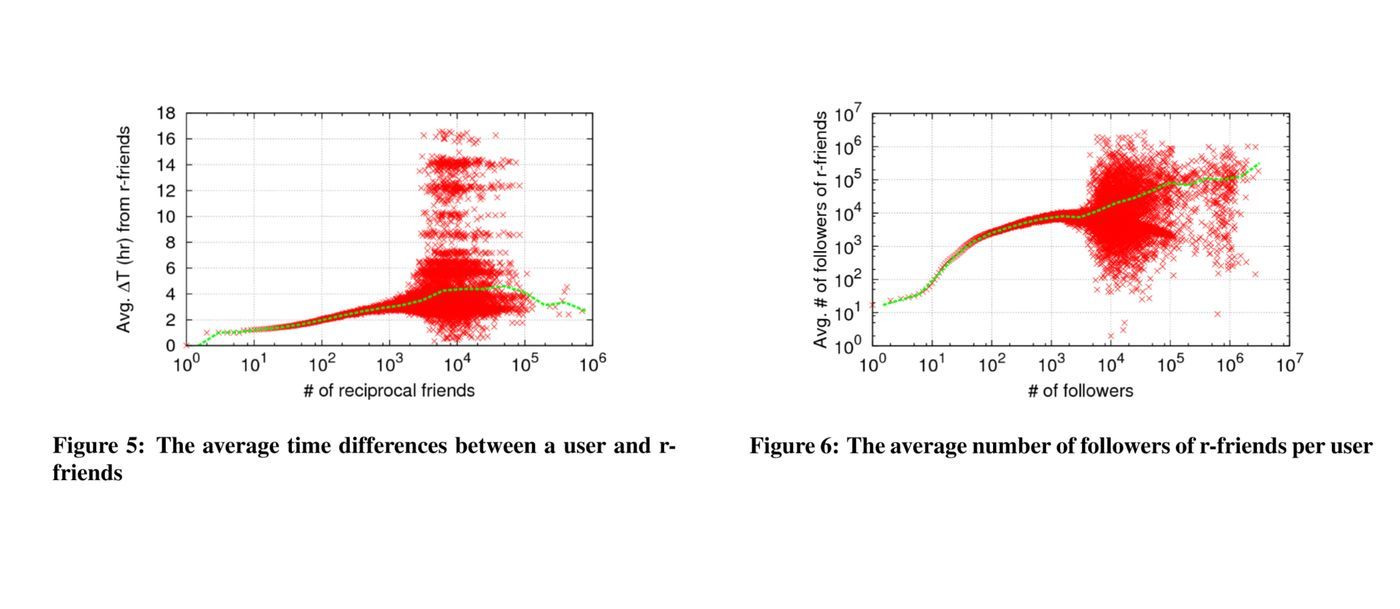
The popularity of the “mourning culture” among grassroots users on Weibo is also obviously inseparable from the atomization of social structures – it is meaningless for individuals to be unable to participate in public discussions or to participate in public discussions, which reinforces the individual’s sense of powerlessness, which further It consumes the enthusiasm of the individual to participate in the public discussion next time, so the feeling of powerlessness deepens... Under this cycle, it seems that only "mourning", "low desire" and "idol consumption" that seems to be irrelevant to the political public sphere are young people. The only remaining topic to vent your attention.
In fact, the "fan circle culture" with Weibo as the main position may indeed be worth mentioning in this analysis. We can think of the "fan circle" as the "public sphere in the consumer world", which also exercises the effects of our power model above. This kind of strict organization gathers "persons as private individuals" who did not know each other through an idol as the center, and they coalesce into a very active group, carrying out large-scale "control evaluation" and "public relations" in the virtual space. ". Because it is possible to form a community, the voice and status of fan groups have been significantly improved. They are no longer ordinary audiences who could not speak in the binary relationship of "idol-followers", but became elder-like figures who can actively participate in the idol's "personal setting" and career planning.
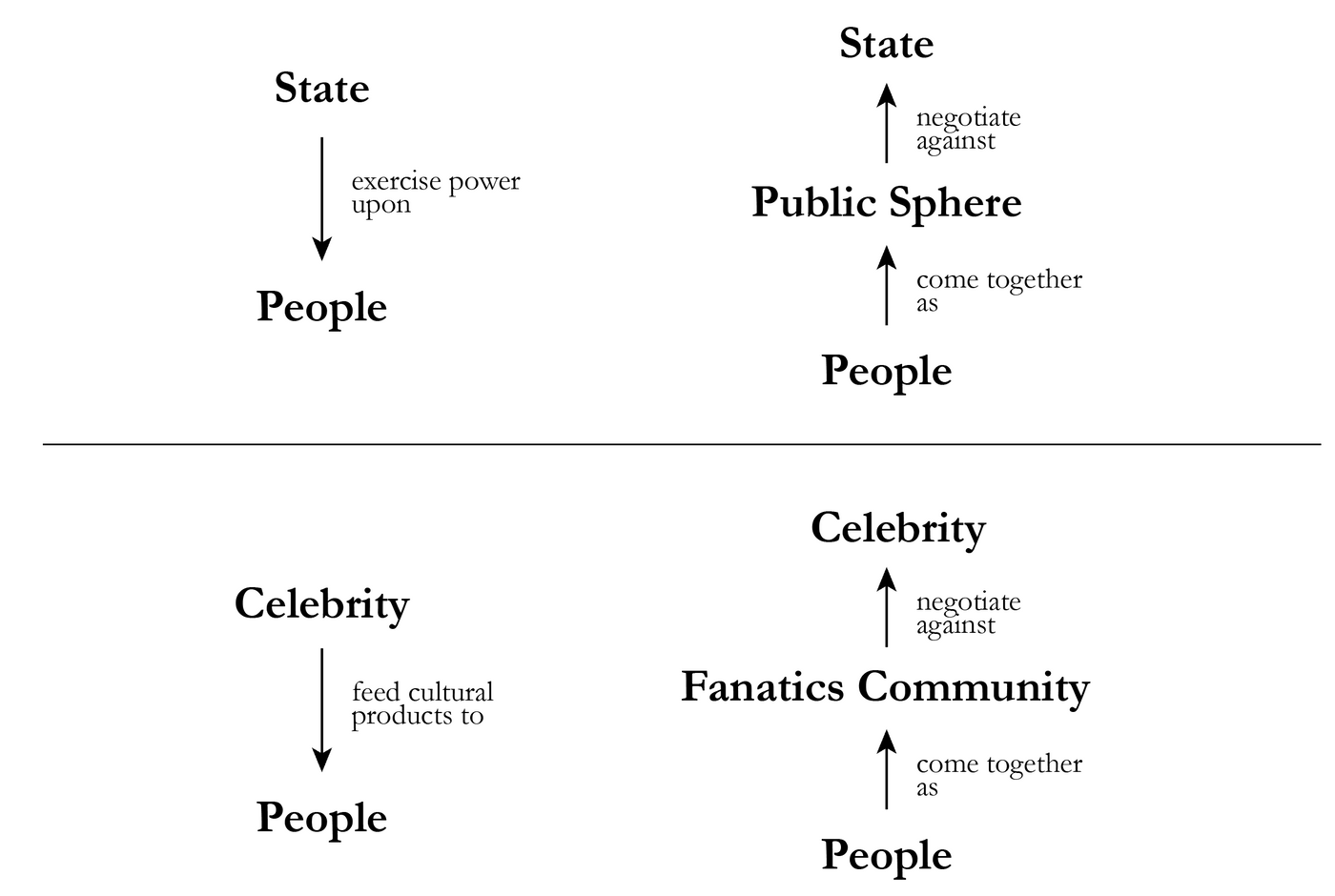
4. Zhihu
The similarity between Zhihu and Weibo is that old users also generally believe that this platform had a golden age in its early days, but now it is tasteless and a pity to abandon. In the two or three years after the registration of the internal beta was opened in 2011, Zhihu has become more like a game field for elite disciplines that have not been out of the circle. Its early users have conquered the game with their extensive knowledge accumulation, keen insight and cunning sense of humor. many people. They demonstrate excellent quest processes and are also good at joking to defuse anti-intellectual remarks and conflicting opinions with a distinctly gunpowder flavor.
Different from the slow pace of Douban, in August 2019, Zhihu has already received a financing of 450 million yuan in the F round. The aggressive commercialization of the past decade has pushed the boundaries of the platform to expand rapidly, and the so-called "elite temperament" of the small circle in the past is obviously unsustainable. This state drives out some old users. It can be seen that the new users are no longer obsessed with getting close to the truth, no longer have deep rational discussions, and even no longer have the sense of humor that the early users have gag. In this platform that begins with the word "knowledge", it seems that discussions aimed at seeking knowledge and truth are rapidly disappearing.
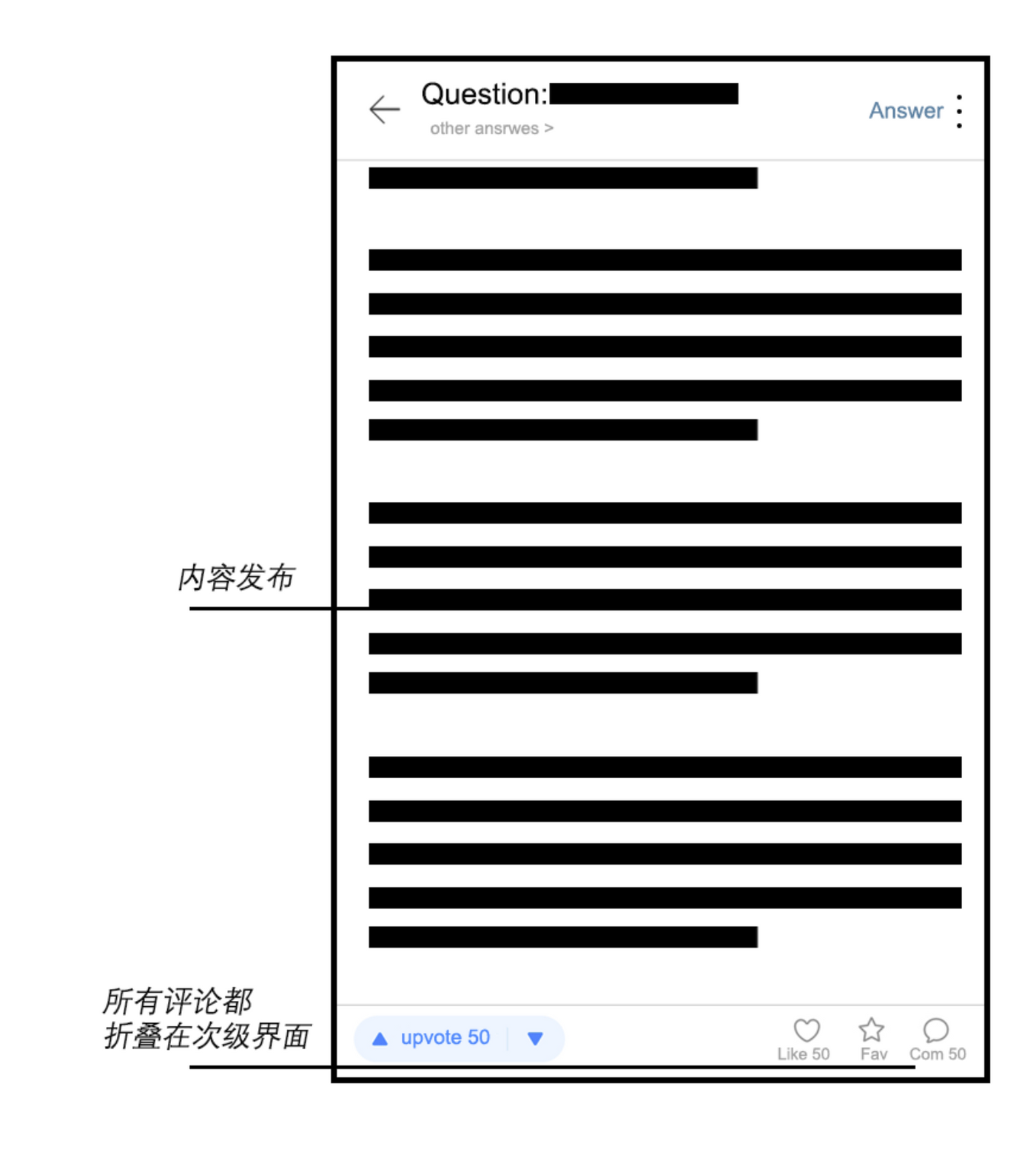
Structurally, Zhihu’s internal opinion sorting form increases the internal friction between opinions. For the optimization of browsing experience, there is also a clear hierarchy between content publishing and comments in interaction design - the visibility of comments is much lower than that of the content itself. And because comments are sorted by "likes", it becomes difficult to have an equal number of conversations between users.
In recent years, operators have also tried their best to avoid the platform's public opinion boom in the public domain for specific social events. What they need to do at this point is actually relatively simple: just delete the question and the bulk of the answer will disappear.
5. Machine core network
Today’s headlines belong to news media rather than social media. Hupu does not have a very rational tradition for discussing public events. Because of the characteristics of the media chosen, short video platforms are also unlikely to form an effective public sphere. We think the machine core network is worth mentioning because we found that the intellectual and ideological content in the message area triggered high-quality discussions that exceeded our expectations. This can't help but remind us of the golden age of some forums more than ten years ago.
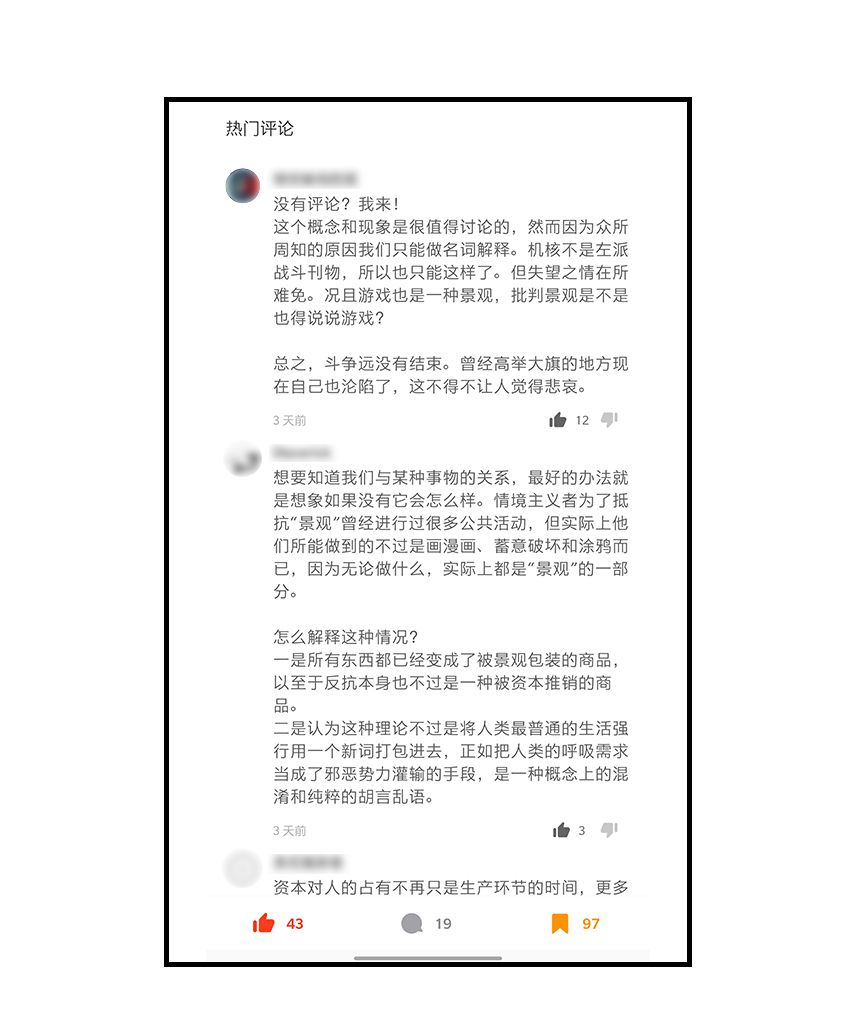
We are not old users of the machine core network, it is compared here with the previous four social media because it can be analyzed as a type . We need to consider the fact that it is not that there are no good discussions on the Chinese Internet. Platforms like Jihewang still exist, but these discussions exist in relatively small Internet islands.
In the machine core network, users gathered as players are not only from the perspective of players and audiences, but also from the perspectives of developers, creators and operators full of initiative to discuss. Such a tradition encourages users to present their thinking process, which is a rare quality in the Chinese Internet. It's just that this niche platform with a high degree of stickiness and cult temperament obviously cannot have the same number of users as the above-mentioned ones. Since it does not occupy an important, eye-catching, and non-negligible territory in the Chinese Internet ecosystem, it is unlikely that the machine core network will become a real public domain.
Structurally, the niche of the machine core network is also reflected in its organizational form more similar to an online community than social media. In the time dimension, the media must emphasize immediacy. However, if grassroots users want to publish content on the machine core, they often go through an internal review time of days or even months.
6. Comparison and Overview
We describe the structural characteristics of five "social media" in the Chinese Internet, namely WeChat Official Account, Douban, Sina Weibo, Zhihu, and Jihewang, and compare the specific forms and spaces provided to users for discussion on these platforms , and thus understand how each of them technically avoids the formation of the public domain.
From a professional point of view, the evaluation dimensions in different literatures are similar: in "McGuire Theory of Mass Communication", Dennis McQuail divides the key characteristics of new media into interactivity, social presence, media Abundance, autonomy, pleasure, personalization and personalization. Research by Jane Kietzmann et al. divides social media into seven functional blocks, namely sharing, presence, relationship, identity, conversation, group, and reputation. In the above-mentioned "Communication in the Cloud: Human Relations in the Digital Age", Nancy K Baym (Nancy K Baym) provides seven key concepts for understanding the Internet: interactivity, time structure, Social cues, storage, reproducibility, accessibility and mobility.
Because of the particularity of the Chinese Internet, we have simplified these evaluation dimensions into five points: censorship intensity, time scheduling, interaction intensity, platform popularity and storage .
It is not difficult to find that the above five social media have selectively discarded some aspects of the five points . The WeChat official account does not carry out content censorship too harshly, but imposes strict restrictions on time scheduling and interaction intensity. Douban does not impose too many restrictions on time scheduling and interaction intensity, but the number of users is obviously lower than that of WeChat, and the censorship is significantly higher. The interaction design of Weibo and Zhihu hides the message area in a more invisible location, thereby discouraging repeated discussions between users. As for websites such as Jinu.com, their interactive strength is indeed very good, but the price is the long review time and the limited popularity of the content - the content stays on the niche platform and cannot be further copied and forwarded to expand the influence of opinions. .
The point of "storage" is mainly aimed at the process of public discussion and whether the public opinions formed after the discussion have been properly preserved. In his discussion of the corresponding chapters of The Human Condition, Arendt considers the public sphere to be a sphere of potential secular eternity beyond the finite life of mortals. It "continues to exist" - generations of people live and die, but the fire of public opinion never goes out, and important events should also be permanently stored in the public domain as historical materials worthy of reference for later generations.
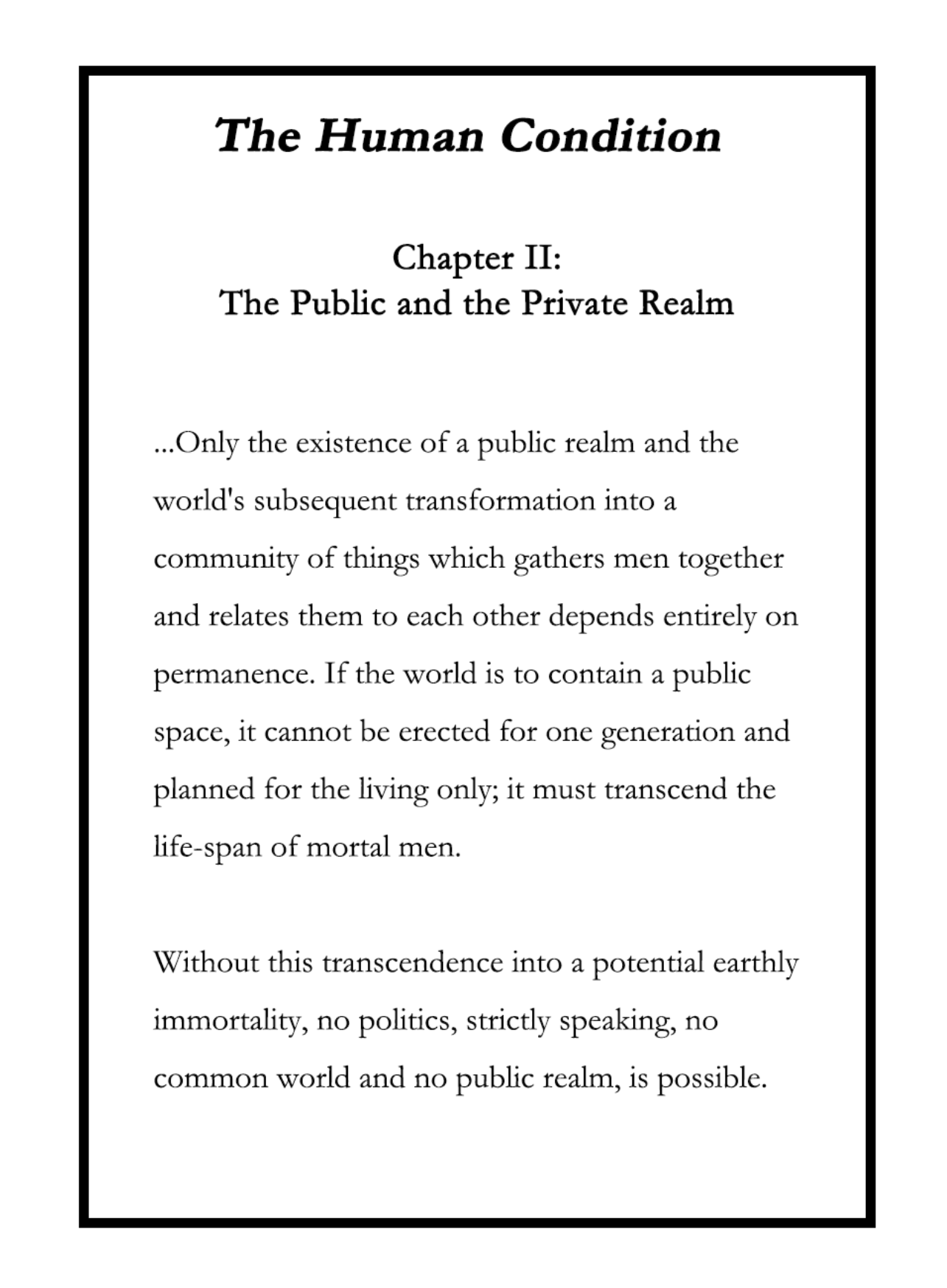
Compared to Arendt's time, the storage of contemporary information has clearly advanced countless times in technology, yet the threat of censorship and deletion for the "persistence" of digital information has also grown. For many readers, the paper documents in the bookcase are more trustworthy than the digital media of the new age. In addition, the flow of information in digital spaces is apparently so fast that, if not deleted, the vast majority of content is forgotten in the moldy virtual warehouses of the digital space.
What matters should be how the Internet remembers public events and opinions. What matters to the user is how to find a particular memory. The answer, of course, is through "retrieval". Sadly, as we transition from the search era to today's feeding era, search has also become more difficult than it used to be. First, databases are not shared among several important platforms in the Chinese Internet. It's like a central library that was once all-encompassing and scattered into several local libraries. For example, both Zhihu and Weibo have built their own internal search engines; and if you want to search the historical push content of a WeChat official account, Tencent's own "Sogou Search" is more convenient and better than Baidu or Bing. As for Douban, it doesn't even have an unsatisfactory search engine inside.
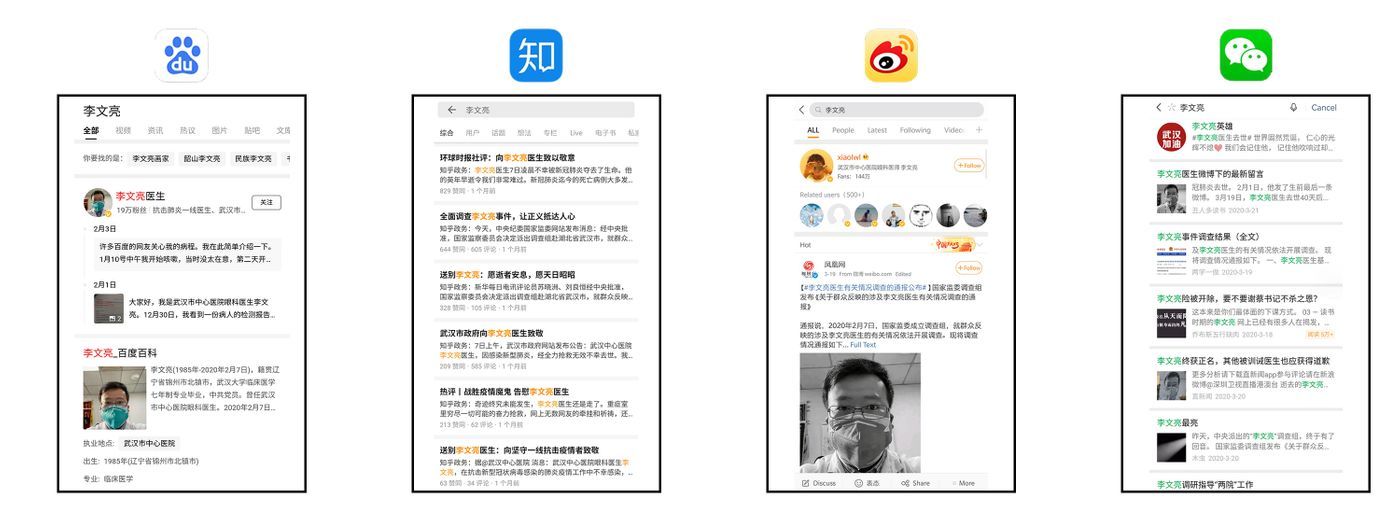
Combining these five points, we can actually reversely summarize what the idealized digital public domain that scholars have enjoyed for nearly two decades should look like.
1. Censorship strength: There is no excessive restriction on content publication - there is no limitation on length/words/form. Do not set too many sensitive words. The content is not deleted or reviewed and deleted by the administrators selected by the users themselves.
2. Time scheduling: When users publish content, other users can browse on the platform in real time. The platform does not limit the amount of content users can publish each day.
3. Interaction intensity: There is a message area. Content can be discussed, and the discussion itself is valued. There is no length limit to the content of the discussion, and the visual level of the interface should not be much lower than the content of the reply. The number of interactions between messages is unlimited.
4. Platform popularity: The platform is open to all users. It has high accessibility and occupies an important territory in the Internet. User identities are plural rather than singular.
5. Storage: Historical content is not cleaned and is easily retrieved as a whole.
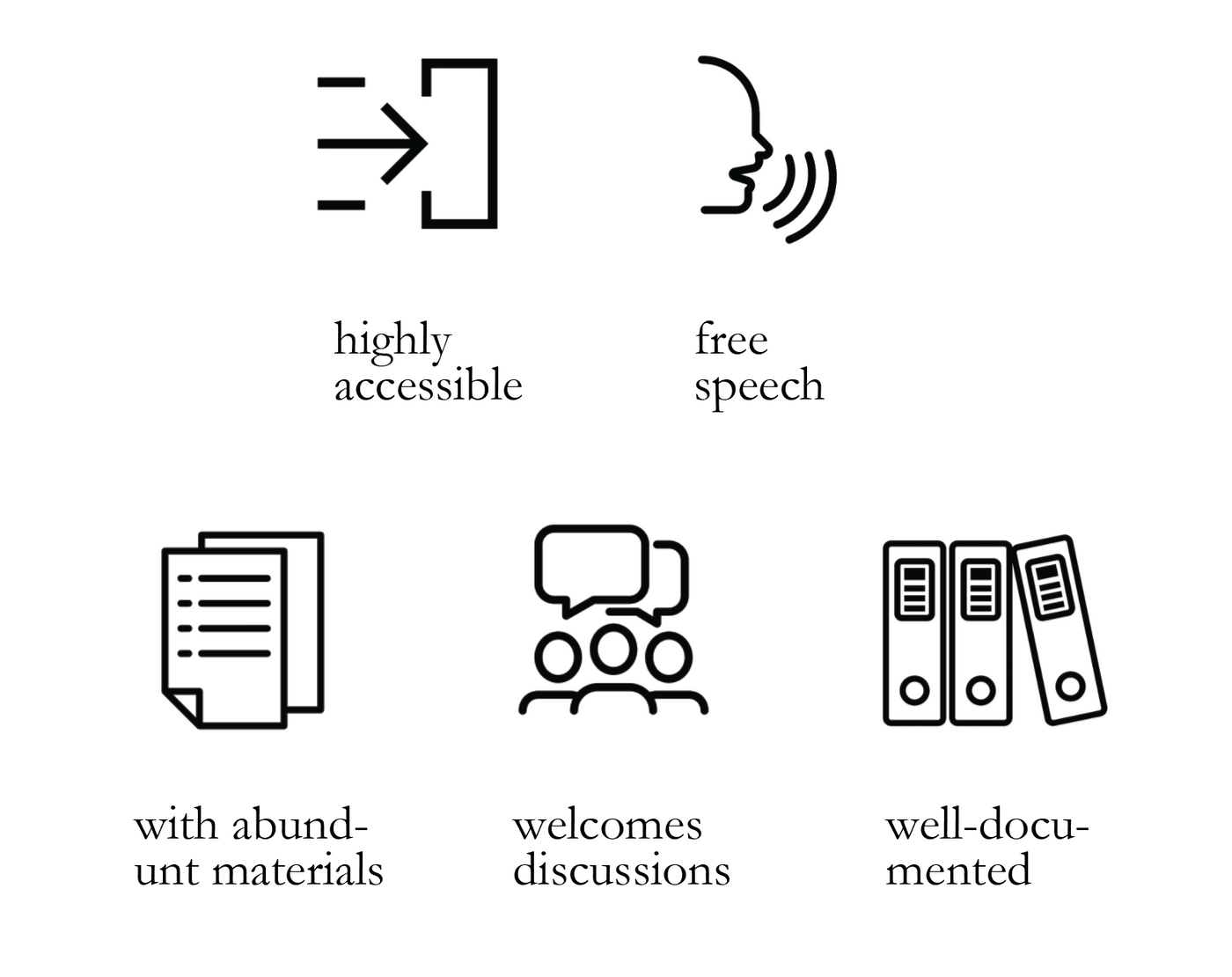
In fact, social media close to this utopia is not without it. Almost all forums and blogs more than ten years ago met these five requirements. From this perspective, it is also better to understand why these two platforms have declined. They may indeed have not kept up with the pace of technological iteration, but the fundamental reason is still national conditions - in today's environment, they must decline.
For Internet entrepreneurs, this seems to be an ironic lesson: if you want to start a business successfully, you have to think about this issue when you build a platform - how to strictly prevent the emergence of the public sphere? If the new platform built meets the above four or even five requirements, then unfortunately, it is almost certain that this venture will fail at some time in the future.
7. Overall structural reflection
If we expand our vision further to a more fundamental structure and consider why operators need to deliberately avoid providing users with a place for "discussion", then the reason behind this is the same as the implementation of almost all policies in this country. For a strict pyramid structure "from central to local", the version that social media faces is: from the State Internet Information Office ("CAAC") to the network information censorship department within the Internet enterprise (from supervisor to censor) , then to users with extensive influence ("big V", "Internet celebrity", "POL"), and finally to grassroots users. The communication of policies in the virtual space is no different from the real space, still emphasizing "understanding the intention of the superior" and "being responsible to the superior". Therefore, in terms of effect, it will often show an expanding response intensity from the center to the local level. Because "it would be better to implement excessively than to fail to implement it properly" and "the statement must be full."
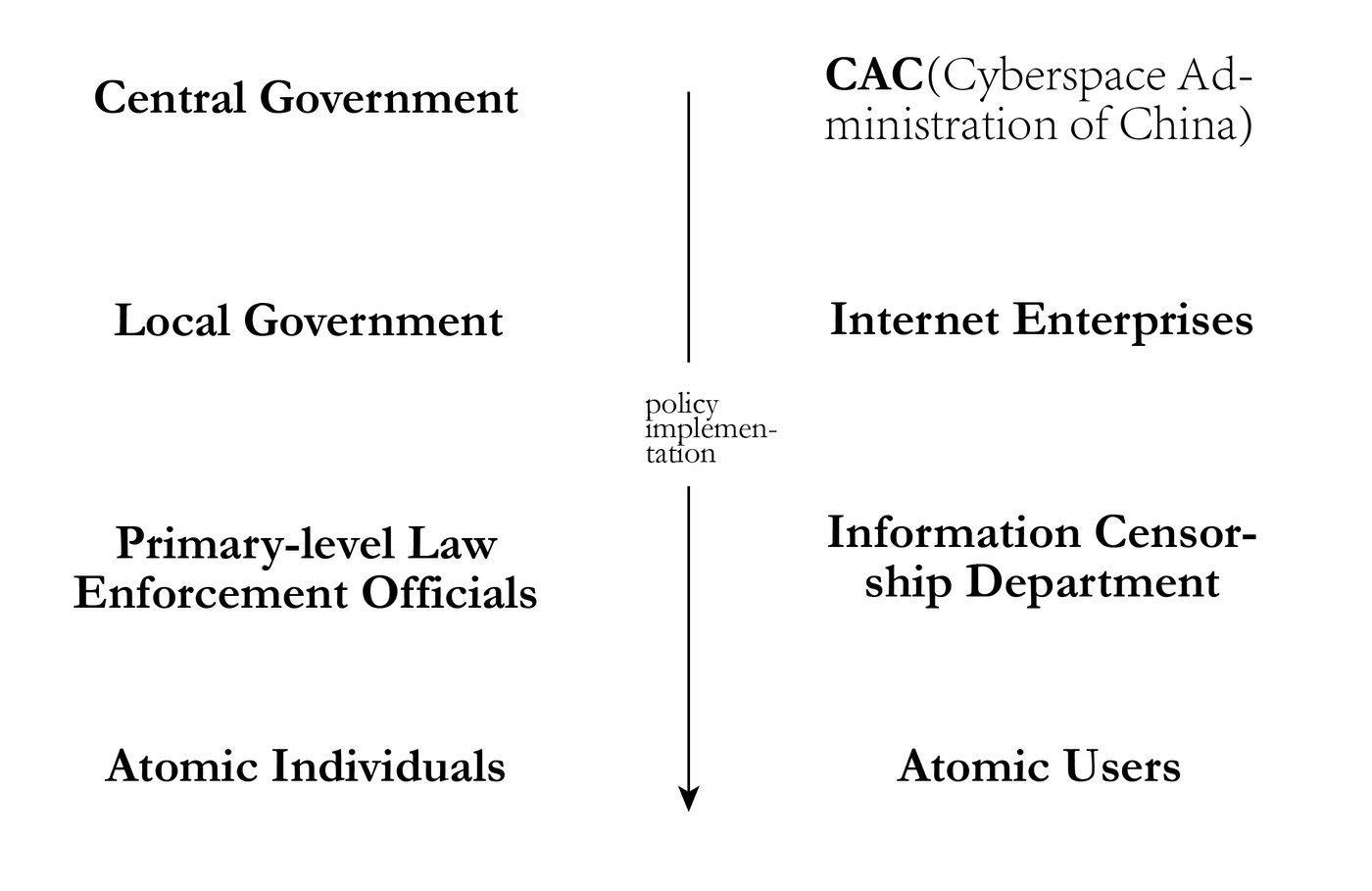
It is generally believed that the specific implementation of censorship and information control is the "3F" policy - fear (fear), idling (friction) and flooding (flooding) .
The "fear" policy is well understood. For users who publish too much "sensitive content", they will be banned, banned, and even offline interviews. This penalty will make other content production teams understand the cost of expressing a particular opinion . If speaking up for something, as a result of operating for several years, the account with a large number of fans and influence is banned, then the account that publishes that content will be greatly reduced.
The "idle" policy refers to a soft and relatively subtle approach. The "fear" policy may cause a stronger public backlash in many cases, so at these times, many policy executors will choose the "idle speed" policy, which is to add "friction" to the illegal social media - let the platform run No longer perfectly smooth. The specific measures can be to suspend some servers of the platform, so that the user waits longer when refreshing and loading the page, or turn off some popular functional sections of the platform, so that the user experience becomes slow and incomplete. In this case, the popularity of the platform itself will be greatly reduced even if there is no rude banning and banning.
If the above is still the world of "1984", then the "flooding" policy is more like a "Brave New World" approach. The first two policies may result in the fact that the truth is constantly being deleted, and the language expressions of users are constantly being castrated and tampered with. Under the last "flood" policy, none of this will happen, and the truth may not be erased. On the contrary, it is just continuously run on by countless dissents, dissents, evidences, false evidences, rumors, semi-rumours, clarifications against anti-rumours, and "real hammers" against anti-rumours, until the readers are overwhelmed by the torrent of indistinguishable true and false information. , lost his last patience and became numb to the event.

It is worth pointing out that "flooding" in many cases does not require the implementation of any actual policy. Because today, every user lives in a chaotic world where information is constantly flooded with information. Many times the truth does still exist, but it is swallowed up by countless entertainment information and commercial advertisements, and no longer attracts anyone's attention.
In this sense, we may also understand why a large number of users on the English-language Internet are nostalgic for the Internet 1.0 era in the early 2000s, and lament the low quality of discussions today. After all, the "flooding" situation is global.
Debord's The Society of Spectacle can help explain this flood of information. The basic feature of the spectacle society is that "image-led interpersonal relationships replace real interpersonal relationships". The real and vivid interaction of netizens on the Internet more than ten years ago has gradually disappeared, and many people miss the "intimacy" and sincere connectedness.
Official account operators can especially understand this feeling - click on the home page of the official account every day to view figures and graphs such as the number of followers. In this image world, the personality characteristics of the followers have completely disappeared. They are no longer flesh-and-blood "people" with thinking, but are abstracted into numbers uniformly by standards. This image-led, false, and indirect interpersonal relationship reinforces the production of landscape text. We have seen countless public account articles attract more viewers by continuously lowering the threshold of speculation. Faced with real people in real life, these authors may not be able to tell the sensational, ugly or puerile content they write. This rubbish does not provoke thinking, does not promote critical reason, but does the opposite, focusing on inciting emotions, venting emotions, labeling, or rushing to express opinions, clarifying one's own line, including the morality of polarizing others trial.
A recent popular sentence pattern may also prove the decline of people's expressive ability under the influence of these rubbish words - "Hey, xxxx is over", "Hey, say so much, in fact, just one sentence: xxxx"
This anti-intellectual phrasing discards the ambiguity that the question may have and the complex steps that the argumentation process may have, and it puts an absolute, violent simplification over critical reasoning. For Jurgen Habermas, this meant that the mass media had transformed the public's "critical rational training" into a "presumption training." At this point, even though a venue is still nominally open to the public, it is effectively closed as a public realm.
Explaining why the existence of the public domain is necessary is a lot of work. We have seen more than once on the Chinese Internet, people are divided into two distinct factions around a certain topic, each forming a stratosphere on different platforms and attacking each other radically. This intense hatred, struggle and disclosure by netizens has formed a high-speed automatic machine.
Conversations became more difficult because the two sides spoke different languages. In such a situation where the ideological war among the people is rampant, there is no need to expect to form a unified public opinion on a certain topic, let alone to promote the benign reform of the policy. For example, in response to the grand topic of "feminism", two factions have formed within the group to call each other "feminist whore" and "male cancer". They both feel that the other party is monolithic and stupid, and both parties feel that arguing with each other is chicken in their respective camps. Speaking with Duck, in the face of the specific question of "Should international students return to China during the epidemic?", there are still two factions within the group, and the two sides still engage in scolding battles that are unlikely to reach an agreement. This all speaks to the fact that when all public spheres are abolished, effective discussion ceases to exist, and there is no longer "individuals coming together as private to form the public", but "individuals being private are more distantly separated. each other".
The only solution is dialogue; only rational dialogue can resolve conflicts. With no place for discussion, there will only be more polarization, more simplification and stigma, more meaningless disputes.
The original content was first published on the WeChat public account "Dune Research Institute", title: The demise of "discussion" in the Chinese Internet
Welcome to our WeChat public account/Douban/Jinu.com, the account name is also "Dune Research Institute". The first-hand content is usually posted on the WeChat public account. We published this article on Matters because of the comments and recommendations from the readers of the public account.
Like my work? Don't forget to support and clap, let me know that you are with me on the road of creation. Keep this enthusiasm together!



- Author
- More